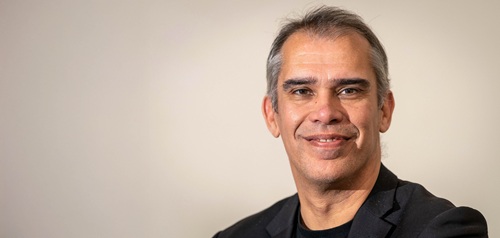What leads to people ‘burning out’ at work, and is this at the root of the so-called ‘great resignation’ we’re seeing particularly in the US, but also here and elsewhere around the world?
Opinion
Tune in, turn up or burn out?
One survey, by Microsoft, showed that two-fifths of the global workforce were considering departing their jobs last year. In another survey, by Prudential, if people were given the chance to retrain, over half would opt for a job in a new industry altogether.
But has the pandemic just led to people reassessing their priorities, or is there something deeper here about the nature of work, and indeed the workplace itself?
One commentator thinks Covid has created a ‘YOLO’ (You only live once) economy. It may well be that the pandemic was a catalyst for some to act, and that more did so once lockdown restrictions were eased. Whatever their motivation, it does seem many people are turning their backs on their day jobs, and unless we understand why we can’t begin to address it.
Time was when keeping people safe was the main objective of this organisation, and others like us, because of the sheer scale of fatalities and accidents at work. Thanks to years of hard work by many, those grim figures have been brought down to tens and hundreds rather than tens of thousands. We still want that to be the case everywhere.
Not being harmed, or killed, at work still comes under the auspices of professionals employed specifically to assess risks, run processes and introduce practices which keep people safe. Many people reading this will be doing just such vital work. But we know that work is more than just tasks we do.
Maslow’s hierarchy of needs shows us that once our safety, health and comfort have been accounted for, people need other things – belonging, love, self-esteem and self-actualisation being next. Changes in the workplace do not always keep pace with or match people’s lived experiences or needs, however.
It is nearly 20 years since the HSE’s Stress Management Standards were introduced but how many employers are aware of their legal duty to do a stress risk assessment and act on it? Surely, alarm bells should now be ringing at the scale and number of people who appear to be resigning from work or leaving their profession?
The ‘burnout’ many people say they feel at work strikes me as being related directly to their sense of wellbeing, which encompasses not only mental, physical and emotional health but also finances, environment, social and even spiritual wellbeing. I believe we can, and must, do better to help our people to feel well and thrive at work. In fact, we risk losing more of them if we don’t.
Achieving this involves taking a much more holistic approach to health, safety and wellbeing and cannot be left to one person or team. It means bringing different skill sets to bear from inside and outside an organisation, and it will need health and safety and HR professionals to work much more closely together. It requires the skills of people who understand systems, processes and data as much as it does those who can communicate and connect with others.
We launched our Being Well Together programme to support organisations to do just this, and we’ll hold our second annual, virtual Wellbeing Conference on 9 February. Our recently launched Keep Thriving campaign seeks to share best practice and raise awareness, so I urge you to get involved, sign up to support it and help save your own and others’ organisations from the ‘great resignation’, before it is too late.
Mike Robinson FCA is chief executive at the British Safety Council
OPINION

Is workplace health safe in 2026?
By Kevin Bampton, BOHS on 10 February 2026
UK Government efforts to boost the economy and employment levels through approaches such as deregulation pose a serious threat to the country’s workplace safety standards and the health of our workforce.

How stress and burnout will shape the workplace in 2026
By Charlotte Maxwell-Davies, Mental Health UK on 09 February 2026
Burnout is rapidly becoming one of the nation’s most significant workplace challenges. It is emerging as a defining issue for organisations and wider society, as the UK contends with a long-term sickness crisis driven by poor mental health. Stress can be motivating in short bursts, but when left unmanaged it contributes to work absences and lost productivity, as well as presenting a clear risk to the health of workers.

A new year, a new approach to risk?
By Mike Robinson FCA, British Safety Council on 02 February 2026
The rulebook is becoming obsolete faster than we can rewrite it. While bureaucracies labour to update yesterday’s regulations, the world of work transforms daily.



